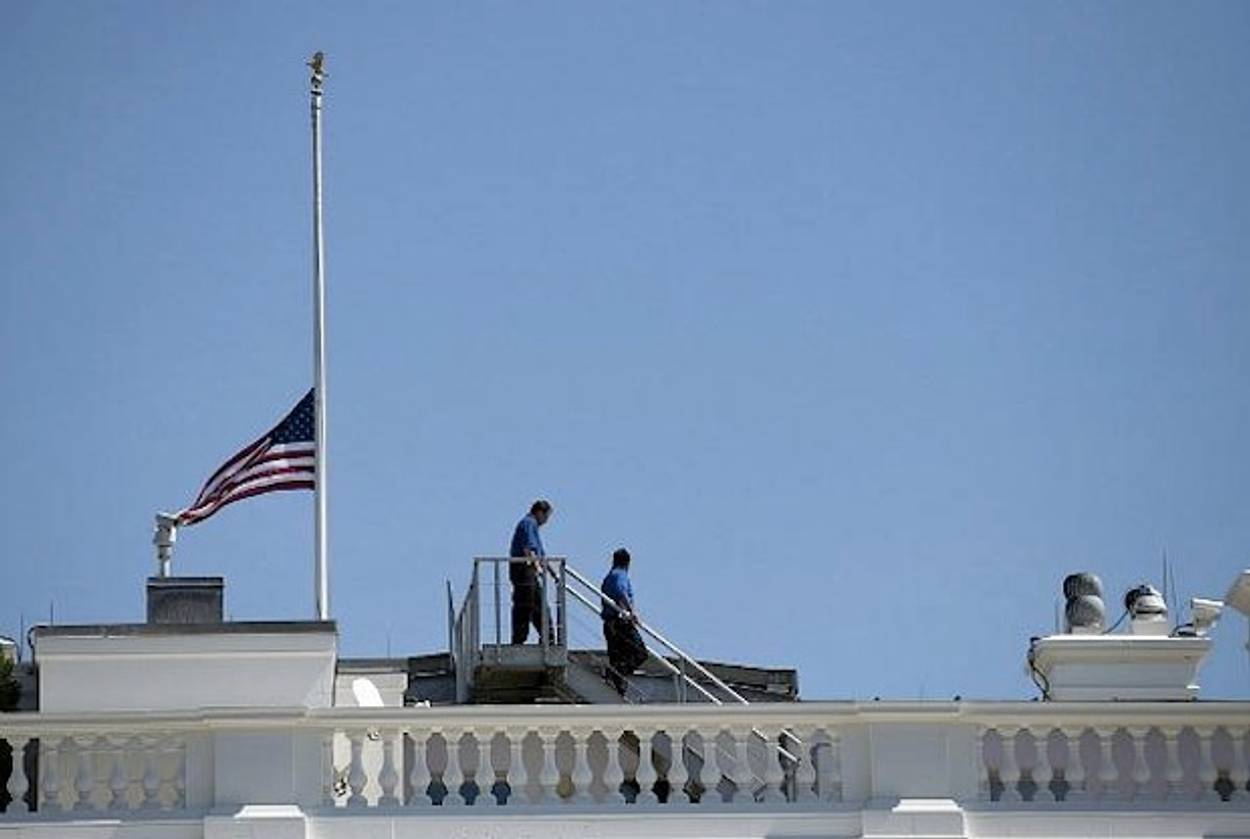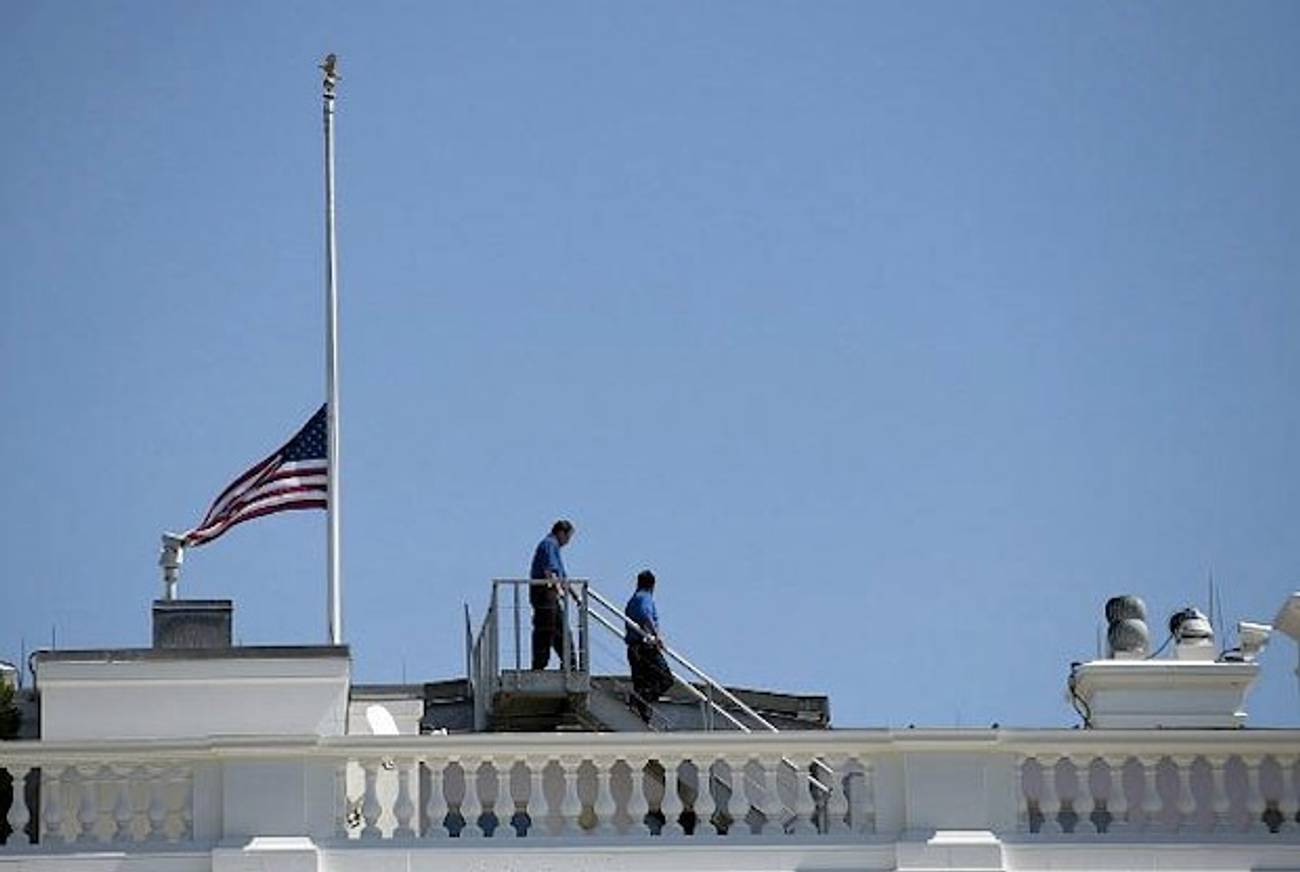A Round Up of Libya Commentary
Matt Welch leads off with an important piece




In the aftermath of the heinous attacks on the U.S. missions in Egypt and Libya (attacks, which seem to be spreading), we’ve put together a collection of different takes on the situations, primarily in Libya, but also in Egypt.
First, we have an excellent, thought-provoking piece up today by Matt Welch–the editor of Reason–about what he sees as an act of misdirection on the part of commenters who blame the attacks on the missions in Egypt and Libya on the anti-Islam film instead of the violent mob. He writes:
No, American writers, reporters, and artists won’t touch the Prophet Muhammad with a 10-foot pair of kid gloves. Provocateurs who luxuriate in the death of God leave Allah the hell alone. Western countries without a First Amendment prosecute “blasphemers.” Even free-speech heroes like Penn Jillette will acknowledge that his act won’t tackle Islam “because we have families.” An alt-weekly cartoonist felt impelled to go into the witness protection program in order to avoid retribution from murderous Islamists unsatisfied with her apology for proposing an “Everybody Draw Mohammed Day.” Meantime, professional free-speech organizations say little.
So, it shouldn’t come as a great surprise that now, after Tuesday night’s savage murder of four Americans in Libya, including Ambassador J. Christopher Stevens, a sector of the American commentariat is calling for the heads of … lunatic Florida Pastor Terry Jones and a bizarro-world filmmaker who goes by the names Sam Bacile and Nakoula Basseley Nakoula. Some of them seemed to go so far as to agree with Mohammad al-Zawahiri that “the filmmakers should be arrested and brought to trial.”
David Ignatius says that making a parallel between this week’s attacks in Libya and Egypt to the 1979 storming of the American embassy in Tehran is an elucidating comparison:
Does America have an interest in the internal fights taking place in these countries still quaking from the Arab uprisings? Yes, of course it does, especially when U.S. embassies are targets of protesters and American diplomats get killed in the crossfire. But this isn’t really about America: It’s about different factions battling for power in a fluid political situation.
Unfortunately, the seizure of the U.S. embassy in Tehran in 1979 is an apt parallel. That was the work of a group of extremist Iranian “students” who were unhappy that the post-revolutionary government of Ayatollah Ruhollah Khomeini wasn’t proving radical enough. They captured the revolution when they seized the embassy. The lesson of that disaster is that local security authorities must quickly restore order — and if they can’t or won’t, then Americans must move out of harm’s way.
Over at Salon, Murtaza Husssain placed on the onus of the blame on anarchy in Libya:
If Libyans are as pro-American as they and their leadership suggest, how could such a shocking attack have been committed by a group of their fellow citizens? While the 2011 war succeeded in toppling the dictatorship of Gadhafi, it has led to a power vacuum within the country that has resulted in many places in a situation of lawlessness and social chaos. Religious extremists, armed militias and opportunistic criminals have been given free rein in some parts of the country. The result has been scenes of horrific violence that have targeted both Libyans and Westerners.
The Times sought to highlight that while Libya was the more disturbing incident, America’s relationship with Egypt is the one that seems most in peril in the wake of the attack.
President Obama telephoned Mr. Morsi and the president of Libya’s National Assembly, the White House said early on Thursday, in calls that seemed different in tone, suggesting dissatisfaction with Cairo’s response as opposed to Tripoli’s.
To Mohammed Magarief, the leader of Libya’s National Assembly, Mr. Obama “expressed appreciation for the cooperation we have received from the Libyan government and people in responding to this outrageous attack,” the White House said in a statement.
To Mr. Morsi, there was no mention of appreciation. Instead, the White House said in a separate but parallel statement that Mr. Obama “underscored the importance of Egypt following through on its commitment to cooperate with the United States in securing U.S. diplomatic facilities and personnel.”
And, of course, Hezbollah had more to say about the anti-Muslim film than the attack themselves:
The film which was recently broadcast in the United States and funded by extremist Jews and Egyptian Copts, in which our holy prophet (pbuh) was insulted, is unmoral act that represents highest level of aggression against loftier right of the human being which is respecting others’ belief.
The film reflects the Zionist-US coalition’s real position from Islam and Muslims. And in this context the statements of condemnation can no longer fool anybody.
Related: A Pretext to Murder in Libya
Piercing the Fog of Revolution [RCP]
Blame Anarchy for Benghazi [Salon]
Hezbollah Statement [Al Manar]
Egypt, Not Libya, May Be the Bigger Challenge for White House [NYT]
Adam Chandler was previously a staff writer at Tablet. His work has appeared in the New York Times, the Wall Street Journal, the Atlantic, Slate, Esquire, New York, and elsewhere. He tweets @allmychandler.